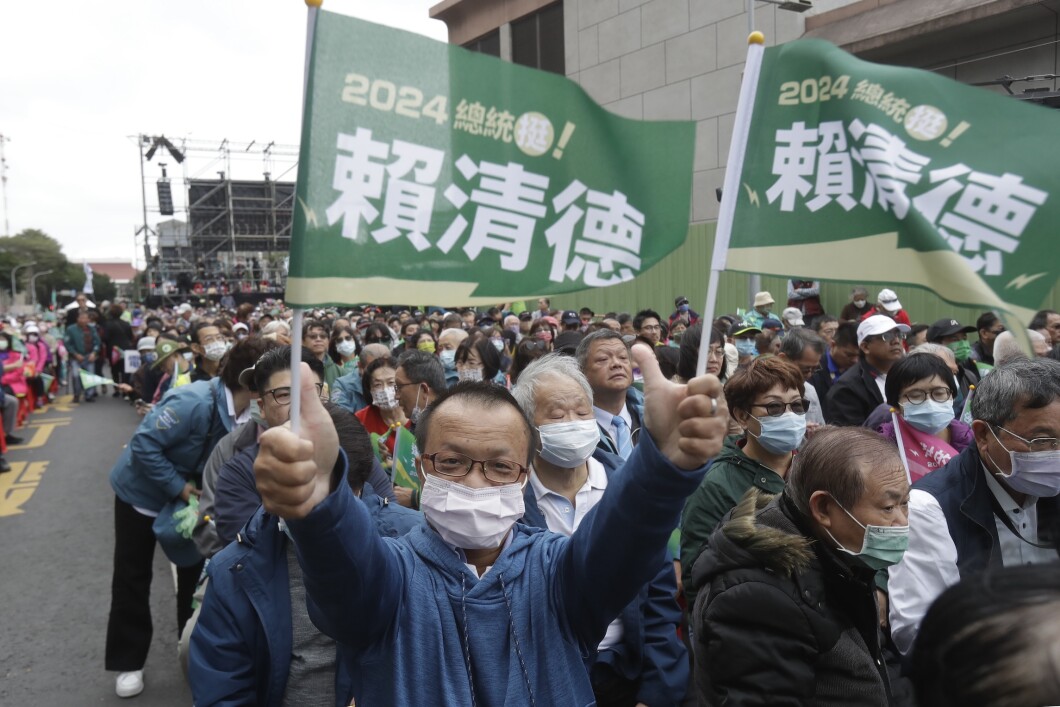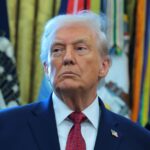
Chinese General Secretary Xi Jinping pressed President Joe Biden to endorse Beijing’s eventual acquisition of Taiwan, according to a new report, but the Chinese leader may have had more modest goals in mind during their most recent meeting.
“He’s not really looking for it, but [Xi] was looking for a little bit of pressure,” said a Pentagon strategist who spoke on condition of anonymity after the details of the conversation leaked. “He’s trying to change the Overton window.”
BOEM HOLDS DELAYED GULF OF MEXICO OIL AND GAS LEASE SALE
Biden met with Xi on the sidelines of the Asia Pacific Economic Cooperation summit, which San Francisco hosted in November. The meeting was hailed as an opportunity to stabilize U.S.-China relations following a year of diplomatic acrimony and high-risk military encounters in the South China Sea, but it continued a pattern of Xi’s regime pressing the United States for concessions in the Indo-Pacific.
“[Xi told Biden] that Beijing will reunify Taiwan with mainland China but that the timing has not yet been decided,” NBC News reported, citing three sources familiar with the conversation. “Chinese officials also asked in advance of the summit that Biden make a public statement after the meeting saying that the United States supports China’s goal of peaceful unification with Taiwan and does not support Taiwanese independence.”

Biden did not make the desired statement, in keeping with long-standing U.S. refusal “to take any position regarding sovereignty over Taiwan,” one of the so-called Six Assurances that Ronald Reagan gave Taiwan after Jimmy Carter moved the U.S. Embassy to China from Taipei to Beijing. Yet the request served to press Xi’s claim to the island, the last bastion of the Republic of China’s government overthrown in 1949 and a place that the Chinese Communist Party has never ruled, even as he maintained that “he has not set a time frame” for subjugating the island.
“Xi knows that the PRC is on a relative back foot compared to the U.S. — the U.S. economy’s doing really well, China’s economy has not been doing very well at all — and he’s really looking for a little bit of predictability from the U.S.,” the Pentagon official said. “What he’s trying to do is ensure that the Chinese aren’t taken advantage of in their relative moment of weakness.”
Biden’s meeting with Xi occurred in the final months of a Taiwanese political season in which voters will pick a successor for Taiwanese President Tsai Ing-wen, who hails from a center-left political party with roots in a “pro-independence” movement formed by dissidents against the authoritarian regime who settled in Taipei after the civil war. Xi’s regime is widely understood to want the defeat of Taiwanese Vice President Lai Ching-te, who has described himself as a “pragmatic worker for Taiwan independence,” in favor of an opposition politician who argues that Tsai’s administration is provoking a risk of war.
“In the eyes of China, the three of us standing here running for the presidency are all [supporters of] ‘Taiwan independence,’” Lai countered Tuesday during a presidential debate. “China’s desire to annex Taiwan is their national policy, and its pursuit of world hegemony is not provoked by ideas of any political party or individual, neither can you stop [Beijing’s aggression] by fully accepting China’s claims.”
Biden’s conversation with Xi has resulted at least in a curbing of the harassment of U.S. military personnel in the South China Sea, such as the “unsafe and unprofessional” interception of U.S. planes by Chinese fighter pilots that have drawn the Pentagon’s ire.
CLICK HERE TO READ MORE FROM THE WASHINGTON EXAMINER
U.S. officials previously have surmised Chinese forces stage those incidents to spook America into a decision to withdraw from the region in order to avoid a dangerous accident. Those high-risk encounters have not occurred “since the meeting,” said the U.S. Indo-Pacific Command’s top military officer, when Xi also agreed to begin a discussion about “turning the military to military channels of communication back on,” as a senior U.S. official told reporters in November.
“And I think over the next 12 months or so, as I look at 2024, implementing the agreements from California is going to be very important,” Ambassador Nicholas Burns, the top U.S. envoy to Beijing, said last week at the Brookings Institution. “Keeping the two governments connected through thick and thin is important. The Chinese practice, when you hit major speed bumps, is to disengage. That is not smart.”





